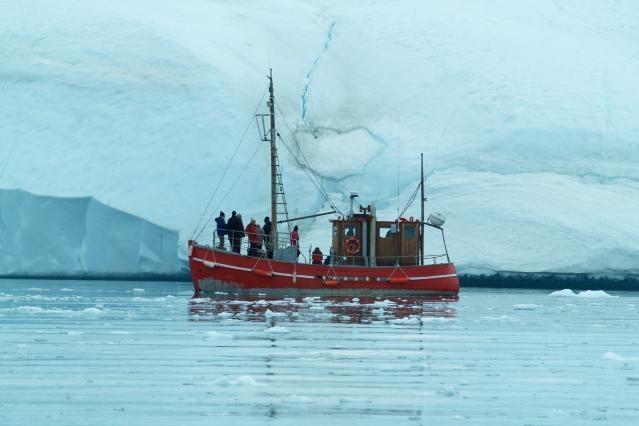
The competitive disadvantage of arctic shipping must be compensated
NewsThe Commission’s proposals on EU maritime transport would increase the annual costs of maritime transport to and from Finland by hundreds of millions of euros by 2030. Finnish trade unions and the Finnish business community call for the full reimbursement of additional winter navigation costs under the Emissions Trading and Fuel EU Maritime Directives in a joint statement.
The co-legislators are currently negotiating measures to reduce emissions from maritime transport by 2030. Emissions trading in maritime transport, the introduction of renewable and alternative fuels and the taxation of marine fuels have been proposed as such measures.
In a joint statement Finnish trade unions and the Finnish business community emphasize, that it is necessary all industry sectors across the EU commit to achieving EU’s new CO2 emission reduction targets. However, emission reductions must be implemented in such a way that employees or companies don’t suffer from a competitive disadvantage due to their geographical location, such as northern location and winter conditions.
The financial impact of EU maritime transport measures is severe in Finland
The financial impact of the new EU maritime transport measures is particularly severe in Finland due to long distances and winter conditions. The use of ice-strengthened vessels around the year increases costs more compared to other EU-member states.
The Commission’s proposals would increase the annual costs of maritime transport to and from Finland by hundreds of millions of euros by 2030. According to in-depth studies by the Finnish Ministry of Transport and Communications, the cost surcharge would multiply in the coming decades.
The impact studies are updated if needed. The price of CO2 emission allowances is already higher than the price used by the Ministry of Transport and Communications and the European Commission in their calculations. Demand for renewable fuels will be growing due to the expanding demand in all modes of transport and increasing production would require regulation that allows for a broad raw material base. Technological and market developments are also challenging to predict.
Around 85% of Finland’s freight is transported by sea. The cost-effectiveness of maritime transport is important from the perspective of Finland’s positive climate handprint, as low-carbon products are typically transported to the international market by sea.
Finnish trade unions and The Finnish industry support the EU’s 55% emission reduction target by 2030 and carbon neutrality by 2050. The needs of the climate, the national economies and employment must be taken into account. It is essential that the competitiveness of Finnish companies and employees is maintained and that investment conditions are safeguarded. Emission targets must be achieved in a cost-effective, technology-neutral and market-based manner.
The joint statement was signed by 20 representatives of trade unions, trade union central organizations, the employers’ confederations in Finnish industries, technology industries and chemical industries and Finland Chamber of Commerce among others. For the full statement, please read more here.
